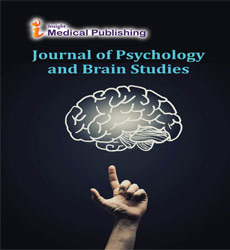How is Connected Economic Crisis in Greece with Cerebral Plasticity and Lack of Motivation?
Instructor of Psychology at University of Aegean, Greece
- *Corresponding Author:
- Antonios Kalentzis
Instructor of Psychology at University of
Aegean, Greece.
Tel: + 0030 2610 322306
E-mail: Psychologized@gmail.com
Received date: September 15, 2017; Accepted date: September 18, 2017; Published date: September 21, 2017
Citation: Kalentzis A. How is Connected Economic Crisis in Greece with Cerebral Plasticity and Lack of Motivation? J Psychol Brain Stud. Vol. 1 No. 2:13
Since the economic crisis started in Greece, we observe the depreciation of electoral voting, regardless of educational or social background of Greeks. This abstention is observed in all areas of Greece, from large urban centers to small villages. Most of Greeks have higher education diplomas and they also have critical analysis to vote for their future but it seems paradoxical to not vote for changing their fate [1,2].
On 10 November 2016 the GSEE Labor Institute estimated that the real rate of unemployment in Greece was 30.8%.
In particular, it was stated that:
• The unemployed amounted to 1,126,455 people,
• The economically inactive population amounted to 3,228,437 people
• The total number of employees amounted to 3,687,465 people.
According to these published findings, we should not focus on the fact that the real unemployment rate in Greece is 30.8%, but that with the same percentages we should be focus that only 36% of Greeks work. (GSEE 2016)
It is worth mentioning that 36% of the working population does not work on the field they have studied, or they work a few hours a week. By correlating this research with our reference to motivation, we observe that a fairly large proportion of employees do not meet their working motivation criteria.
A research published in the British Journal of Clinical Psychology in 2016 states that when someone is pessimistic about the future, they can actually cause depression [3].
We do not mention that "it can be caused depression", because a person is pushing mental health on pessimism, catatonia and this chronic situation can lead to social isolation and inactivity [4,5].
In January 2016, the American Journal of Psychiatry published a survey that "Children aged 4-8 years from poor families are more likely to reveal changes in the brain with a higher risk of developing depression than children from more affluent families [6,7]. In addition these changes in the brain are also associated with lower academic performance [8].
Findings based on the 2010-2014 period were given by Dr. Nikolaos Thomaidis in a recent study published in August 2016 [5] is highlighted that the Mental health drugs increased dramatically [9].
In a Greek reality of this era, children born during the Greek economic crisis, austerity and constant negative stimuli from the broader environment are likely to experience symptoms of depression and have lower academic performance [10].
All these sources indicate that there may not be an abstention from the Greeks in their voting rights, but they abstain from the hope of a lucrative future. It is worth noting, however, that there is a generation born or adolescent in this pessimistic status quo.
Of course we need more research about the connection of cerebral plasticity and social pessimism in adult and young people, but we have to mention that during the 20th century, when there was a similar economic dysfunction, a result was the creation of extreme regimes supported by young people.
References
- Boniwell I (2012) Positive Psychology in a Nutshell: The Science of Happiness (3rd edn.) London: Mc Graw Hill.
- Schnyer DM, Clasen PC, Gonzalez C, Beevers CG (2016) Evaluating the diagnostic utility of applying a machine learning algorithm to diffusion tensor MRI measures in individuals with major depressive disorder. J Pscychresns 264 :1-9.
- Roepke AM, Seligman M (2015) Depression and prospection. Br J Clin Psychol 55: 23-48.
- Fredrickson BL (2009) Positivity: groundbreaking research reveals how to embrace the hidden strength of Positive emotions, overcome negativity, and thrive. New York: Crown.
- Thomaidis NS, Pablo GF, Ort C, Maragou NC, Alygizakis NA et al. (2016) Reflection of socioeconomic changes in waste water: Licit and illicit drug use pattern. Environ Sci Technol 50: 10065-10072.
- Snyder CR, Lopez SJ (2009) Oxford Handbook of Positive Psychology, (2nd edn). New York: Oxford University Press.
- Barch DM, Pagliaccio D, Belden A, Harms MP, Gaffrey M et al. (2016) Effect of hippocampal and amygdala connectivity on the relationship between preschool poverty and school-age depression. The Am J Psychiatry 173:6.
- Snyder CR, Lopez SJ (2006) Positive Psychology: The Scientific and Practical Explorations of Human Strengths. Thousand Oaks, CA: Sage.
- Millgram Y, Joormann J, Huppert JD, Tamir M (2015) Sad as a matter of choice? Emotion-regulation goals in depression. Psychol Sci. 26: 1216-28.
- https://www.iefimerida.gr/news/300950/institoyto-ergasias-gsee-sto-308-pragmatiko-pososto-tis-anergias-stin-ellada.
Open Access Journals
- Aquaculture & Veterinary Science
- Chemistry & Chemical Sciences
- Clinical Sciences
- Engineering
- General Science
- Genetics & Molecular Biology
- Health Care & Nursing
- Immunology & Microbiology
- Materials Science
- Mathematics & Physics
- Medical Sciences
- Neurology & Psychiatry
- Oncology & Cancer Science
- Pharmaceutical Sciences
